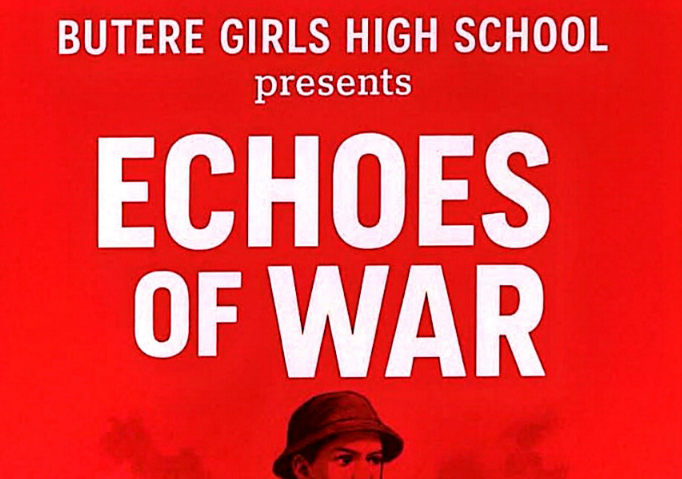

Butere Girls High School has been thrust to fame yet again over its controversial stage play scripted by former Kakamega Senator Cleophas Malala.
The school which had initially been banned from staging the Gen Z-theme play dubbed ‘Echoes of War’ on grounds that its theme critiques the government was set to perform at this year's national drama and festivals competition.
It is being held at Lions Academy in Nakuru County.
The court lifted the ban on April 3, paving the way for them to participate when Justice Wilfrida Okwany suspended any letter banning or barring the school from participating in the festival.
What is the play all about?
It centers on a nation recovering from a civil war, with young citizens at the forefront of rebuilding efforts and critiques the role of digital spaces in governance and the power of youth in shaping societal change.
It is set in a Royal Velvet Emirates, a fictional Middle Eastern kingdom where societal balance is fracturing.
The play blends tradition, religion, and futuristic elements to dramatise a generational conflict simmering beneath the surface of many modern societies.
With its bold themes and unconventional character representations, including a humanoid Artificial Intelligence (AI), the play is being praised as visionary by some and condemned as blasphemous by others.
The elderly, once revered for their wisdom and experience, feel increasingly sidelined by a rising generation that champions innovation and rejects rigid traditions.
The play uses this fictional backdrop to reflect real-world tensions between conservative values and progressive ideals.
Characters
At the heart of the narrative is Sultan, a powerful ruler caught between upholding ancient customs and embracing a future he barely understands.
Anifa Imana, the embodiment of AI, represents a new form of life, one that merges human memory with machine logic.
Her character, a symbolic creation of both nature and technology, becomes the central battleground in the play’s philosophical and spiritual arguments.
Religious and cultural figures like Mama Anifa, the Police, and the Imam bring emotional weight and ideological opposition.
Mama Anifa, mourning the loss of her daughter’s traditional path, views Anifa Imana with both fear and sorrow.
The Police, caught between duty and fatherhood, symbolises the internal conflict faced by those who straddle the two worlds.
Mustafa, a young tech innovator, challenges the state’s rigid systems, only to be branded a traitor.
The Imam serves as the voice of strict orthodoxy, fiercely rejecting any deviation from sacred norms.
The play’s most controversial aspect lies in its portrayal of religion and authority clashing with artificial intelligence and youth rebellion.
Audiences are left to grapple with questions: Can tradition and technology coexist? Is rebellion necessary for progress, or is it merely a reflection of ungratefulness and moral decay?
Echoes of War doesn’t provide easy answers but instead uses hyperbole, allegory, and poetic dialogue to provoke deep reflection.
It challenges viewers to consider the true cost of generational silence, the price of progress, and the humanity hidden within code and culture alike.











